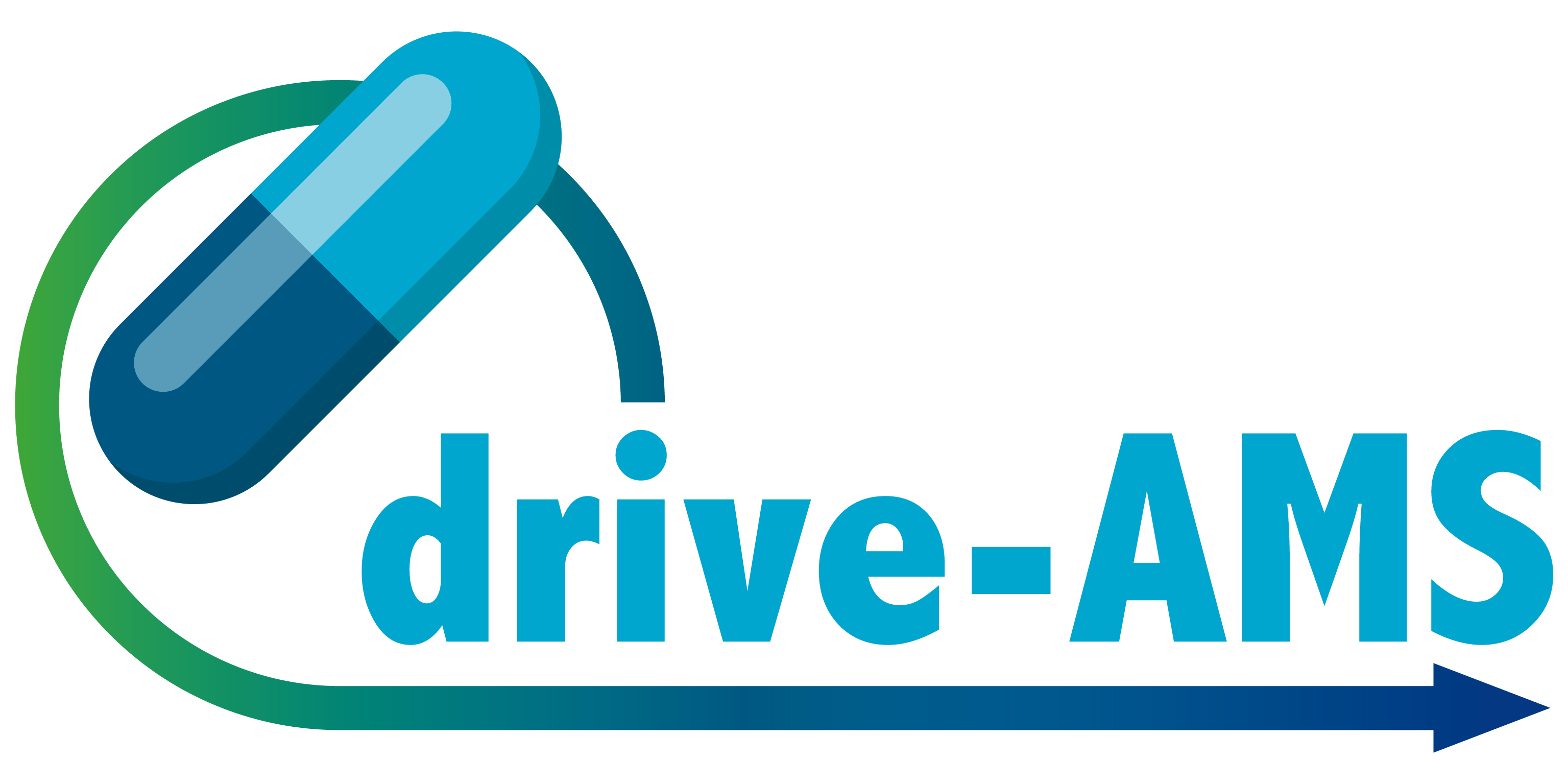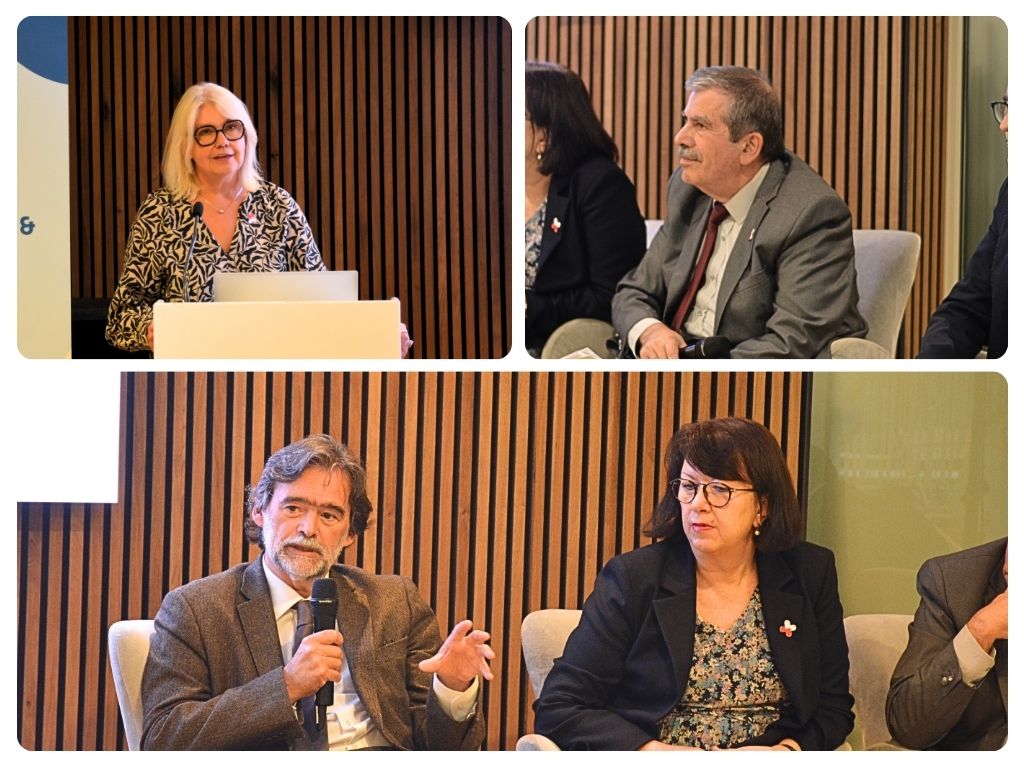Achievements and impact of drive-AMS
Besides the organization of systematic training sessions, courses and webinars on antimicrobial stewardship (AMS) in hospitals, drive-AMS’s achievements also included broadening the scope of participation. The aim was to not only achieve multidisciplinarity among those who attended the courses, but also among those who taught them, says Rolanda Valintėlienė (Lithuania’s Country Lead): ‘Our lecture team included people from different hospitals, even different universities, and we also insisted hospitals sent multidisciplinary groups to the course itself. This approach promoted communication between hospitals, which then for example promoted discussion on consensus on antibiotic use recommendations.’
More admirable success were Greek drive-AMS endeavors spilling over to Cyprus, where the national Ministry of Health helped organize courses. Another great achievement was booked by the Portugese leg of the project, which now includes no less than 16 different institutions. They in turn represent 60% of all acute care beds in Portugal.
Finally, what stands out in all projects is their ingenuity and perseverance in advancing the fight against AMR, making impressive progress with the resources available. Even in countries without a national AMS framework, participants succeeded in increasing knowledge and awareness of stewardship. Country Lead Mihaela Lupse testifies how this motivated several Romanian hospitals to implement tangible changes: ‘In many hospitals, we lack the most important things, truly the bricks at the base of a plan for AMS. There are hospitals without protocols or an antibiotic team, so you don’t have something to compare the practice. The program helped increase knowledge on AMS and its importance and helped set up AMS interventions that truly realized results.’
Challenges and lessons learned
Each national context brought unique insights, yet countries also shared common lessons and opportunities for growth. Recurrent hurdles included changing behaviour, limited resources, lack of leadership and prioritisation of AMS, and uncertainty about the project’s sustainability after its end.
Emmanuel Roilides explains how both small and large hospitals in Greece faced their own obstacles: ‘Some small hospitals had no people or projects working on AMS. They were eager to participate but didn’t have the time or resources. On the other hand, large private hospitals had many physicians, but less structured departments than public hospitals. Instead of having to change behaviour in five or ten physicians in a department, you had to do so in 300 in the whole private hospital.’ Rolanda Valintėlienė in turn stresses the importance of behavioural studies: ‘Usually, when something was wrong in AMU (antimicrobial use), new guidelines were made, they were taught and then audited. But if people did not follow them, there was no investigation as to why. Implementing this and changing behaviour was a challenge, so we had to slowly invite the new hospitals into this process.’
Another important challenge, as Lupse points out, is the lack of formal recognition for those trained within the project. Without official certification or endorsement from the Ministry of Health, it can be difficult to ensure continuity and credibility for trainers and programs: ‘We are trainers without any papers. We need something to prove that we are trained and understand the problem. It’s important to have something official, some credibility.’
Continuing the work
Building on the progress made, all participating countries are eager to further implement drive-AMS principles and organize more courses in the future if available resources allow them to do so. The Portuguese team, for example, has achieved notable advances in AMS policy by integrating the project’s principles on a national level, specifically through their inclusion in the Sustainable Health Act 2020. They intend to continue these efforts, although more than legislative change is needed, according to Country Lead José-Artur Paiva: ‘We’ve put this on the agenda for the Sustainable Health Act 2030 in Portugal. However, we can put this into legislation, but it also has to be part of the daily life of hospitals and primary care centers. We have achieved much, but we need to engage new generations in this way of working.’ Romanian Country Lead Mihaela Lupse similarly expresses her strong commitment to what’s to come in Romanian hospital AMS initiatives: ‘It’s sure that we’ll continue. It’s something that is necessary, not only in Romania, but everywhere. We’ll follow the trends; we’ll follow politics; we will not stay behind.’
A shared sense of success
For José-Artur Paiva, drive-AMS’s greatest success is how it managed to connect expertise across countries and create a shared AMS culture. Reflecting on the project’s outcomes, he recalls how a follow-up assessment confirmed what participants were already feeling: ‘That was definitely a success. We did a small semi-structured assessment during the long road meeting, with people from the 16 institutions involved, and no one was less than very satisfied. That’s amazing. When you feel the atmosphere in these meetings, it’s very much like a family: with a lot of discussions, but also working toward the same goal and the same purpose, aligned on tackling AMR.’

